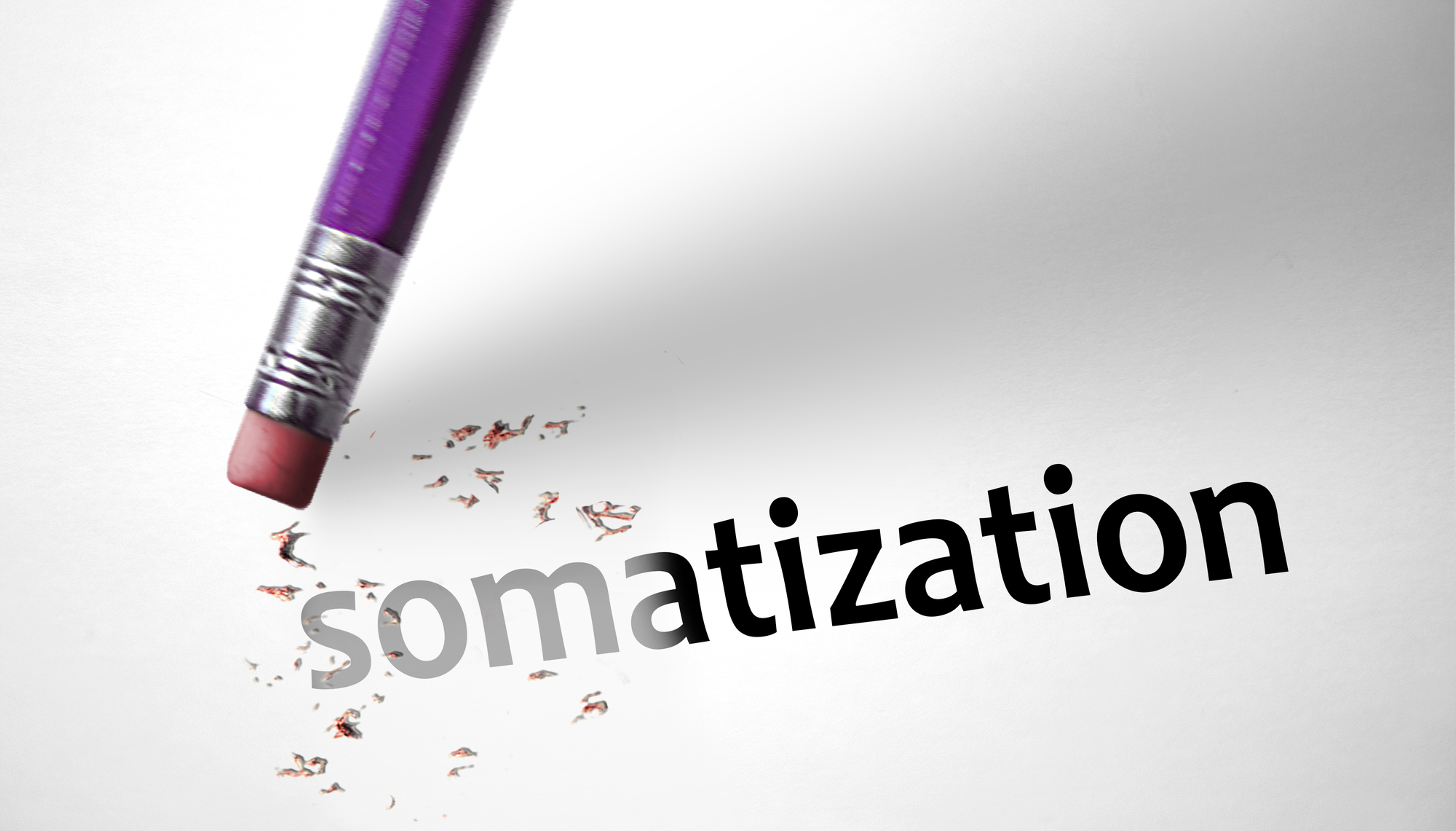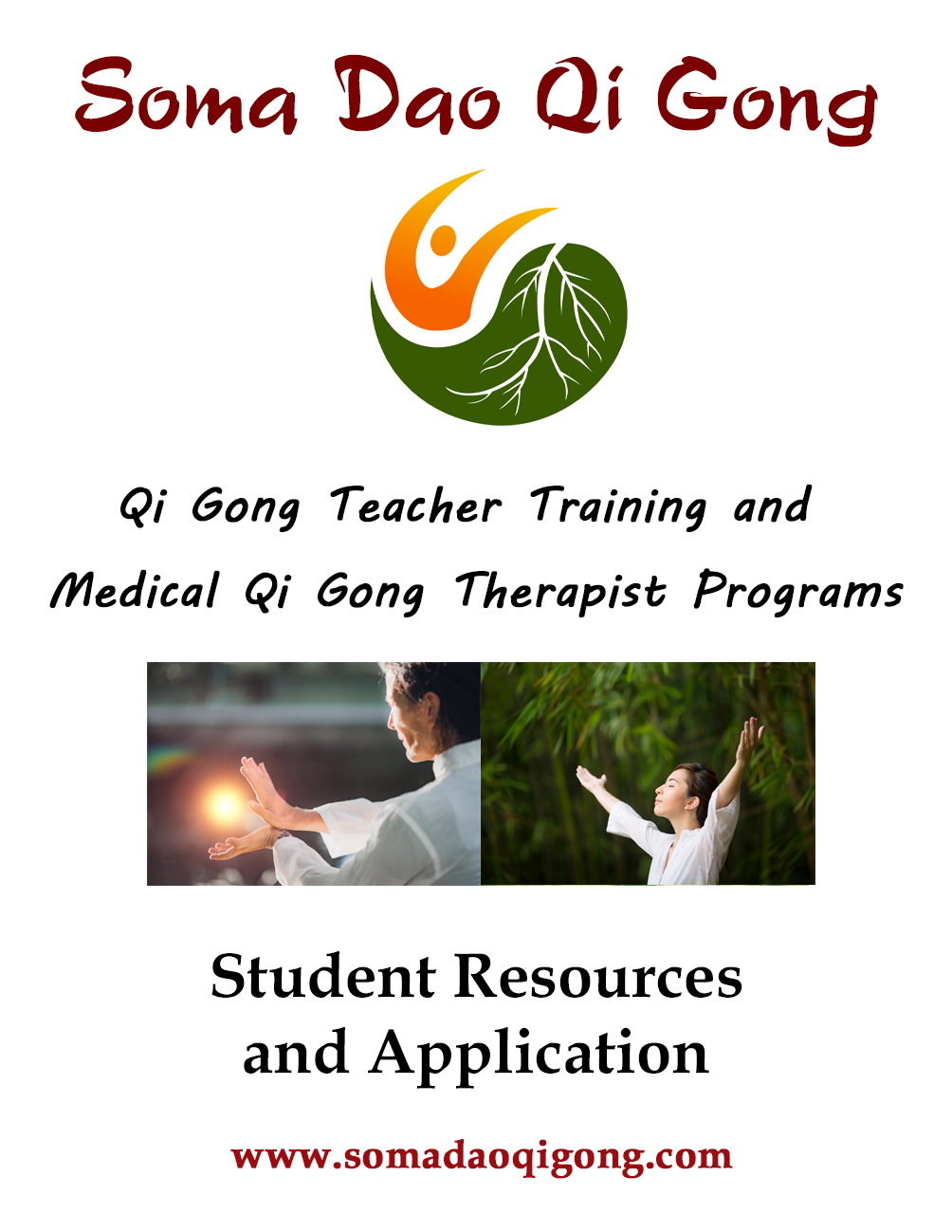Qi Gong Actively Releases Traumatic Memories
On a subtle and Spiritual level, Qi Gong is about learning to trust and connect with yourself and the Universe or Dao.
Consider these insights about modern Qi Gong practice:
- Many people who want to learn Qi Gong are seeking the resolution or prevention of chronic illness.
- It is estimated that at least 60% of all chronic illness is due to chronic distress and trauma<?>.
- The greatest wound of chronic illness and trauma is a loss of trust with one’s body, one’s self, and the goodwill of the Universe.
- Traumatic holding patterns, including the embodied constraint due to illness and pain, can become a felt sense instinctual somatic imprint.
The combination of gestures and postures that open your joints, with breathwork designed to ‘loosen’ the need for control and the release of embodied memories makes Qi Gong a powerful resource and therapeutic balm for many people on the journey to better health. With time and practice, this ancient practice can give you the confidence and willingness, for the most part, to move into areas that you may have closed off or separated yourself from within your body.
This gradual reunion with your whole embodied self is a gateway into a completely different way of feeling into the world. This, of course, takes time and practice, but it will provide you with a much more profound sense of vitality. 1https://www.ncbi.nlm.nih.gov/pmc/articles/PMC3668544/citedby/
This opportunity exists as a natural process that reverses individual somatic constraint in the order it was created. To make the most inspiring sense of this aspect of Qi Gong, I would like to describe the Four Wounds of Trauma. If you are interested in much more detail, I encourage you to explore the article Qi Gong, Trauma, and Addiction.
The First Wound is Hypervigilance.
Hypervigilance in the instinctual focus on any and all possible danger. If you have a chronic illness, you may become hypervigilant to your symptoms. If you grew up in a dangerous environment, you will naturally have learned to ’empathize’, or be hyper-concerned with the mood and behaviour of the people around you. There are many other ways this can happen, but the important take-away is your nervous system is prone to staying in a Sympathetic or Fight or Flight state. Your inner and/or outer world now has some kind of danger in it – always!
The skill and capacity to induce your innate Relation Response, to bring yourself into a more patient, present and trusting relationship with your body and your environment can be as effective as using anti-anxiety medication. <?>
The Second Wound is Comfort Seeking.
If you cannot find some way to relax and release the state of Hypervigilance, the need to control stress, symptoms, pain and inner turmoil can become a full-time job.
When an animal survives a life-or-death encounter, they shake, pant, yawn, and then take a nap. Comfort Seeking is an instinct. We all need to shake off a bad day or in some cases a car accident or a divorce. I mean shake it off literally. All animals have to release trauma through nervous system expression, or a tangible shift of state.
This can be oversimplified as shifting from a Sympathetic (Fight, Flight, Freeze) Response, to a more soothing Parasympathetic (Rest, Digest, Repair) Response.
If you have suffered any form of trauma and/or are living with the life-changing aspects of chronic illness, just relaxing your nervous system is not going to be enough. Comfort comes from moving towards a challenge and changing the way that challenge feels – over and over again until you can trust that it will almost always work.
Without the ability to self soothe, we are all going to feel as mature and patient as a 4-year-old with a toothache. With some personal exploration, practice and authentic curiosity, Qi Gong can help almost everyone find the relief that they need to begin the journey back to trusting your body, yourself and the world.
The Third Wound of Trauma is Social Disorientation.
The Parasympathetic and Sympathetic aspects of your nervous system actually function through your Polyvagal System. This VERY ancient part of your nervous system has evolved to help you interact with others through body language, tone of voice and facial expressions.
As children, we will either move towards another, especially powerful adults, or away from them based on their way of expressing themselves. Many people who have experienced trauma early in life have a limited ability to trust others and feel safe on an instinctual level. Your Polyvagal System has evolved over millions of years to help you use your intuition to trust and connector to distance and control.
This tactical response to life is referred to as Social Disorientation and can limit one’s capacity to feel love, to share affection, and to collaborate with strangers.
Social Disorientation naturally amplifies the first two wounds of trauma; Hypervigelense and Comfort Seeking. Challenging social experiences like high-school shifts the fundamental need to belong to the internally frantic experience of trying to fit in. Fitting in is not an instinct, it is a strategy. Belonging is an instinct.
Consistent Qi Gong practice can help down-regulate your nervous system and begin the gradual exploration of reconnecting to others in a way that realigns your polyvagal system. Self-trust is an essential need before you can truly allow yourself to trust others.
Many of the advanced internal aspects of Qi Gong (called Nei Gong) and breathwork can help restore and regulate your polyvagal nervous system. Perhaps the experience of social disorientation goes back a lot farther into human history than expected.
The Fourth Wound is Existential Pain.
This wound is the most destructive and crippling in the long term. Consider these questions:
- In the worst moments of your life, who let you down the most?
- If you were mistreated by the people who you instinctually believed were there to help you learn, feel safe, and grow, what does that imply about you?
- If the people who were meant to model how to be effective in the world, were not only ineffective but dangerous or unavailable emotionally to the degree you could not trust them, how did you learn to truly trust yourself in the world?
- These are uncomfortable questions but they bring up the proverbial elephant in the room; what does it feel like to be unable to trust your self?
- What does it feel like to not belong and barely feel like you fit in socially and within your own skin?
Losing your social connection is heartbreaking. Losing self-trust is soul-crushing.
This world crushing experience is called existential pain and is the most common cause of addiction. This experience has many, many destructive effects on any person’s life.
In my experience, the greatest challenge is a loss of trust in meaningful experiences. Loss of meaning can only be regained through consistent opportunities to feel what meaning brings into your life. In Qi Gong practice this is found through conscious exploration like meditation and embodied healing through regular shifts of your state of being.
Some of us need to learn to trust our practice before we can finally release the existential pain fitting in and finally find ourselves belonging to a greater truth than the experiences of the worst moment of out life.

Other Articles in the Series
Qi Gong Improves and Accelerates Tissue Repair
Qi Gong Improves Posture and Coordination
Meditative Awareness Improves Focus, Memory, and Sleep
Qi Gong Balances Stress Hormones and Reduces Inflammation
Qi Gong Improves Your Metabolism and Mood
Qi Gong Inspires a Creative Mindset
Qi Gong Guides the Release Traumatic Memories

I am interested in learning more about becoming a Qi Gong Teacher and/or a Medical Qi Gong Therapist and would like to receive your MONTHLY newsletter.
YES! Send me a copy of the Student Resource Guide
(We respect your privacy)